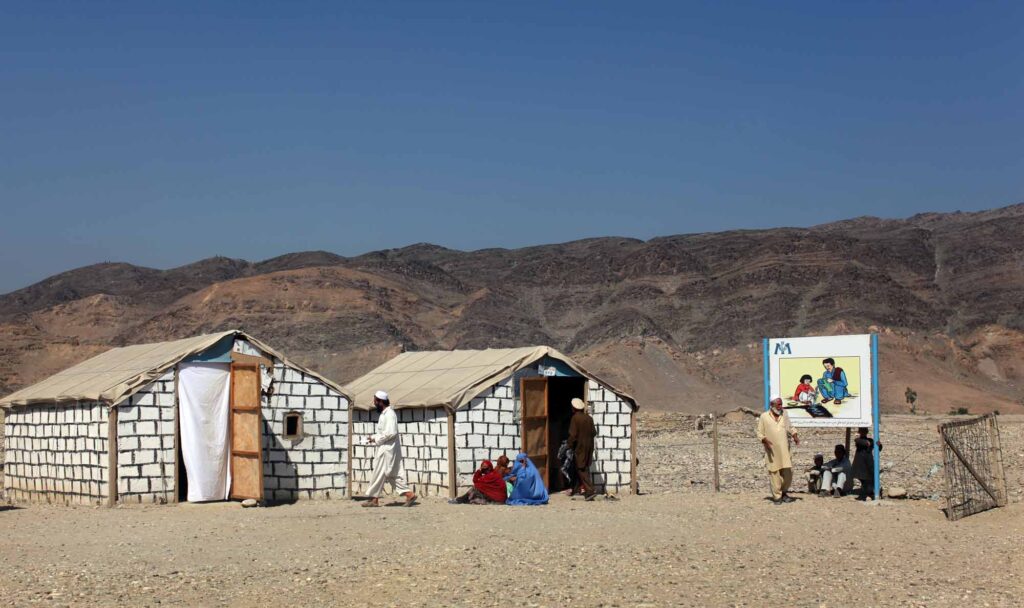
Afghanistan
International Medical Corps was established in 1984 by volunteer doctors and nurses to address the critical need for medical care in war-torn Afghanistan during the Soviet occupation. Over the decades, in the face of continued conflict, we have remained, delivering medical care, healthcare-related services and training, as Afghanistan remains one of the world’s most complex humanitarian emergencies.
In 2025, an estimated 22.9 million people will require humanitarian assistance to survive due to several consecutive years of crippling economic decline, all while still reeling from the effects of decades of conflict and recurrent natural disasters. Despite these challenges, International Medical Corps continues to support Afghanistan’s healthcare needs. Our staff—the vast majority of whom are hired locally—continue working throughout the country to improve the quality of life and health status of those we serve by providing medical services and training.

40.1 million
53/56 years
male/female
101.3 deaths
per 1,000 live births
The Challenges
Our Response

Integrated Healthcare and Nutrition
International Medical Corps provides primary and community healthcare and lifesaving medical services in Balkh, Faryab, Kabul, Kunar, Laghman, Nangarhar, Paktika and Sar-e-Pul provinces. In 2024, we provided 750,710 health consultations, including emergency trauma-care services, to people affected by conflict and natural disasters. We provided health services—including antenatal care, delivery assistance, postnatal care and family planning—to 71,171 women.
We provided lifesaving nutrition services to 55,310 children under 5, and to 17,399 pregnant and lactating women. International Medical Corps supports integrated specialized healthcare services in Balkh, Faryab and Kabul, including female drug addiction treatment centers and two opioid substitution treatment centers in Balkh and Kabul, where services include detox, rehabilitation and MHPSS services. Other services include awareness sessions, screening, outpatient care and motivational interviews. In 2024, 796 people completed inpatient/residential treatment periods.

Mental Health and Psychosocial Support (MHPSS)
We provide MHPSS services to help people and communities rebuild social structures after an emergency or critical event. We train MHPSS counselors to detect mental health needs and provide services through our mobile teams, health sub-centers and hospitals. Training includes mental health case management, psychological first aid, interpersonal therapy and problem management. Counselors offer both group and individual counseling to those exposed to distressing life experiences—such as armed conflict, natural disasters and displacement—and refer people with severe mental health conditions to appropriate health facilities. We also train medical doctors in the World Health Organization’s Mental Health Gap Action Programme to expand care for mental, neurological and substance-use disorders in non-specialized settings.

Water, Sanitation and Hygiene (WASH) Programs, and Non-Food Items (NFIs)
International Medical Corps provides WASH services to internally displaced persons, returnees and host communities in Balkh, Faryab, Kunar, Laghman, Nangarhar, Paktika and Sar-e-Pul provinces. In 2024, International Medical Corps improved access to WASH services for 78,814 people across the eastern, northern and southeastern provinces of Afghanistan.
Our teams constructed 25 community-based solar-powered water supply systems and rehabilitated two water-supply systems and 63 community-based boreholes and wells, delivering clean water to more than 78,800 people. We also provided 900 people with access to hygienic latrines by rehabilitating or constructing 18 flush toilets near schools, health facilities and communities.
Our teams distributed NFIs—including dignity, hygiene, water and winterization kits—to 21,120 families. We provided hygiene promotion sessions to 38,998 people and distributed 18,671 bars of soap to families in need. In 2024, we provided 700 winterization kits to returnees in Kunar, Langhman and Nangarhar provinces. The kits included blankets, clothing for winter, shoes both for children and adults, and socks and shawls for women.

Protection Services
International Medical Corps works to discourage attitudes and behaviors that contribute to protection incidents in Afghanistan. We also use targeted social- and behavior-change activities, such as community dialogues and awareness sessions, about protection and other issues—including mother and child health, vaccination and human rights—to achieve this goal and reduce the stigma surrounding survivors.
We provide protection services, including psychosocial support (PSS) services and counseling services, in Baghlan, Balkh, Bamyan, Dikundi, Faryab, Jawzjan, Kabul, Kunduz and Samangan provinces through 16 psychosocial counseling centers (PSCCs) and six children, family and social centers.
We ensure that medical and PSS services are available to survivors and that they receive life-skills and vocational training to increase their resilience. We also provide PSS services through mobile teams integrated with mobile health and nutrition teams in Faryab and Sar-e-Pul provinces, and provide protection services—including child protection—through our children’s and family social centers and community well-being groups in Balkh, Kunar, Laghman and Nangarhar provinces. We provide parents and caregivers with parenting-skills training, and support children through recreational activities and child-protection case management. In 2024, we provided protection services, including PSS, to 123,670 people.
Our health educators work to increase the general knowledge of protection issues and the services available to address them. We engage with influential groups—including elders, school principals and religious leaders—to organize community dialogues. The teams also work closely with key actors—including local health facility staff, community focal points and MHPSS centers in each province—to protect anonymity and arrange discrete referrals. We identify one male and one female in each community who become focal points and facilitate referrals for our services.
Our Impact


Clean Water and Hygiene Services Transform Life in Rural Afghanistan
International Medical Corps delivered an innovative initiative that brought clean, sustainable water to more than 14,000 people, changing lives forever.
READ MORE

